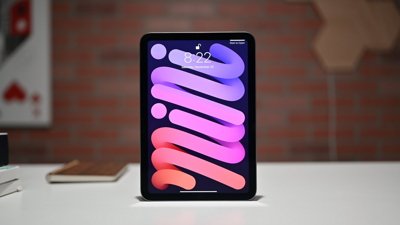Intel publicly revealed the new processors, due to arrive Jan. 4, which employ 45nm manufacturing. The company said the new process enables "significant" power reduction along with faster speeds in a smaller size. Average power consumption has been reduced by 20 percent over the previous generation.
The new processors integrate both the CPU and graphics core onto one chip — something that previously required two chips. The new line includes the N450 for netbooks, the D410 for low-end desktops, and the dual-core D510 for desktops. All are paired with the Intel NM10 Express Chipset.
Intel said it has shipped over 40 million Atom chips since the processor debuted in 2008, and noted that netbook sales exceeded that of Apple's iPhone and the Nintendo Wii. Total shipments are predicted to grow into the hundreds of millions by 2011.
"The Intel Atom processor has fueled an entirely new category of computing over the last year and a half and we think the growth will continue for devices like netbooks and entry-level PCs built around basic computing and Internet usage models," said Mooly Eden, Intel corporate vice president and general manager of Intel's PC Client Group.
"We're excited to be delivering the next-generation Atom platform and working across the industry as we head into a second phase of growth, powering innovative new system designs with better performance, smaller footprints and better battery life."
The new Atom processors are also smaller, which will translate into more compact systems and longer battery life. Intel said that the netbook footprint has decreased by 60 percent and the size for entry-level desktop PCs has decreased by 70 percent over the previous generation.
The N450 for netbooks includes 512k of L2 cache and a 7 watt total kit TDP, including the chipset. The D410 for desktops also has 512k of L2 cache and has a 12-watt total kit TDP with chipset. The dual-core desktop D510 has 1MB of L2 cache and 15-watt total kit TDP, including chipset. All run at 1.66GHz. Prices were not made available.
Intel also intends to launch an application download store much like Apple's own App Store for the iPhone and iPod touch. The service will come preinstalled on Atom netbooks and computers and is said to employ the same revenue split used by Apple for the iPhone: 70 percent for developers, while Intel will take a 30 percent cut. The Atom Developer Program SDK allows developers to build software for netbooks powered by Intel's Atom chip, whether they are running Windows or Intel's Moblin operating system.
Last week, Intel announced that its new "Arrandale" dual-core processors would be unveiled at CES in January 2010. The new processors, which are already in production and shipping to vendors, are widely expected to be a part of Apple's future MacBook Pro line.
Though at first rumors existed that Apple would embrace the Atom platform, it never came to be. It is believed that Apple's long-rumored, still-unannounced tablet device was at one point based around Intel's first Atom processor, dubbed Silverthorn. In 2008, speculation was rampant that Apple would create an ultra-mobile device based on the chip.
But sources have hinted to AppleInsider that Apple was not satisfied with battery life on Atom-powered devices it tested in pre-production. It was around the same time when Apple completed a $278 million buyout of fabless chip designer P.A. Semi, which is expected to lead to custom-built chips based on the ARM architecture in future iPhones and perhaps other devices, like the rumored tablet.
The Atom chip has of late had a relationship with Apple products, but in an unofficial capacity. Headlines were made when the latest update to Snow Leopard, Mac OS X 10.6.2, made it incompatible with Intel's low-cost chip on hacked machines. However a workaround was quickly discovered for those who run unauthorized "Hackintosh" machines without Apple hardware.
Last week Intel was sued by the U.S. Federal Trade Commission over alleged anticompetitive tactics. The commission has accused Intel of engaging in practices to stifle competition and innovation in the chip-making market. Intel has denied those claims.
 Neil Hughes
Neil Hughes







-m.jpg)






 Christine McKee
Christine McKee
 Amber Neely
Amber Neely
 Andrew Orr
Andrew Orr

 Sponsored Content
Sponsored Content

 William Gallagher
William Gallagher









27 Comments
And in other hackintosh-related news . . .
Intel Monday revealed its new line of low-cost, low-power Atom processors ...
Is it just me, or does it seem like between the lines of every statement in this release is a none to subtle, dig at ARM chips?
I think Apple throwing off Atom for ARM really got under their skin.
I like the lights she has under her shelves - I wonder if they're LED.
Intel should jump directly to the 11 nm process and offer Apple an impressive 0.5 W TDP Atom processor that runs Mac OS X. That would make a real killer Apple Mac iTablet.
Is it just me, or does it seem like between the lines of every statement in this release is a none to subtle, dig at ARM chips?
I think Apple throwing off Atom for ARM really got under their skin.
Yep nothing worst than somebody pointing out how bad your new baby is.
In any event this release from Intel highlights in my mind a total lack of commitment on Intels part in this market place. Intel has a leading edge low power process, but failed to transition Atom to 32nm. Even worst this is far from a Systen on Chip solution, so no matter what Intel Atom based devices need more PC board space to go along with that extra power. Basically to little to late.
Dave